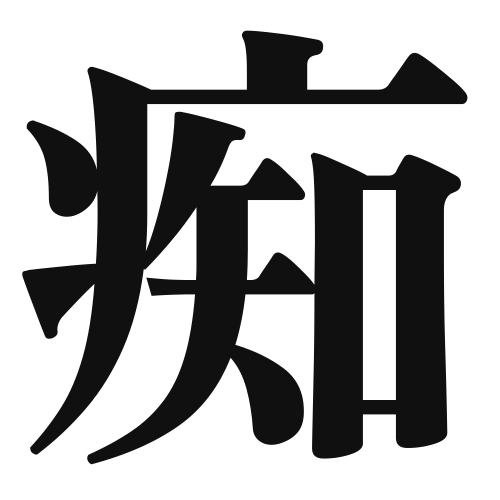1. Overview of Meaning
The kanji “痴” (chi) generally means “foolish” or “stupid.” It is often used to describe someone who is lacking in wisdom or understanding.
2. Formation and Radical
The kanji “痴” is a phonetic compound (形声文字) that combines the radical for “disease” (疒) on the left, which relates to the body or health, and the phonetic component “知” (chi) on the right, which means “to know.” This combination suggests a lack of knowledge or understanding that leads to foolishness.
The radical is 疒, which is associated with illness or conditions affecting the body.
3. Examples of Usage
Common words and phrases that include “痴” are:
- 痴漢 (ちかん, chikan) – a molester or pervert
- 痴呆 (ちほう, chihou) – dementia or senility
Example sentence in daily conversation:
彼は痴なことを言っている。
(かれはちなしことをいっている。)
(He is saying foolish things.)
4. Synonyms and Antonyms
Similar kanji with related meanings include:
- 愚 (ぐ, gu) – foolish or stupid, but often implies a lack of intelligence rather than a lack of knowledge.
Antonyms include:
- 賢 (けん, ken) – wise or intelligent.
5. Cultural and Historical Background
The kanji “痴” has connections to Japanese culture, particularly in literature and discussions about morality and wisdom. It often appears in proverbs and idiomatic expressions that caution against foolish behavior.
For example, the proverb “痴人の夢” (ちじんのゆめ, chijin no yume) translates to “a fool’s dream,” which refers to unrealistic or foolish aspirations.
